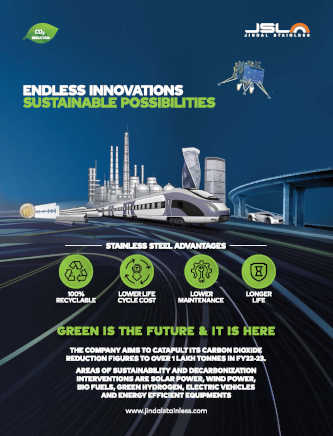Adani Group will invest between $50-70 billion in organic and inorganic growth opportunities across the entire energy value chain over the next decade, said its chairman Gautam Adani.
Adani said his port-to-energy group will invest over $20 billion in renewable energy generation alone. “Over the next decade, we will invest over $20 billion in renewable energy generation. Our overall organic and inorganic investments across the entire green energy value chain will range between $50 billion and 70 billion,” he said at an industry event.
The investments will include joining hands with potential partners for electrolyser manufacturing, backward integrations to secure the supply chain for its solar and wind generation businesses, and AI-based industrial cloud platforms.
“Adani Group is not sitting still. We are tripling our solar power generation capacity over the next four years. This is a rate of growth currently unmatched by any other company anywhere on the planet,” he said.
Saying that the infrastructure conglomerate’s renewables portfolio has reached the initial target of 25GW four years ahead of schedule, Adani said the group already is the world's largest solar power player. “This puts us well on track to be the world’s largest renewable power generating company by 2030,” said Adani, who last year said he had seen India becoming a $28 trillion economy over the next three decades.
By 2050, India’s per capita income will expand from about one-thirtieth of that of the US to one-third of the US. “I fundamentally believe the Indian economy is still to hit its inflexion point of decades of double-digit growth. Therefore, I now think I may have understated my 2050 GDP projection of $28 trillion,” he said.
He said the global effort to combat climate change will result in the creation of opportunities equal to trillions of dollars of investments. These will include next-generation high-efficiency solar panels, low carbon materials that make the largest offshore wind turbines affordable, mainstreaming of carbon capture technologies, various fit-for-purpose battery technologies, algorithm-driven smarter and distributed grids, electric mobility, and hydrogen-related technologies.
“I would even go as far as to state that the revolution in alternative energy technologies throws opens the possibility that someday India can become a net green energy exporter,” he said, adding hydrogen and its derivatives can replace a significant amount of India's imports of crude oil, natural gas, and coal.
-

The infrastructure conglomerate’s renewables portfolio has reached the initial target of 25GW four years ahead of schedule























